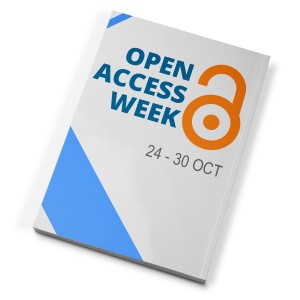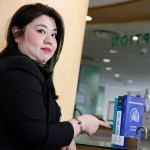
Click here for clue to OA Quiz
#OpenAccessWeek is here again! Now in its ninth year and taking place from 24 – 30 October, this year’s theme is Open in Action — literally less talking, more doing.
We have these activities all lined up for you:
- 26 October: Open Access Publishing Talk by Brill
- 24 – 30 October: Exhibition on Open Access and Scholarbank@NUS
- 24 – 30 October: Online Quiz
Why Open Access?
Whether you’re a graduate student or researcher, you may find yourself involved in open access one way or another. That’s why a team of eager-beaver librarians have come together to answer some of your most pressing questions on how open access benefits you.
 Kash, Business Librarian and avid xbox gamer What is open access? |
 Raven, ELL Librarian and beauty junkie So, how do I take my first step in open access? |
 Iftikhar, Engineering Librarian and cross-training athlete Never heard of ScholarBank@NUS |
 Umarani, Sociology Librarian and Arsenal supporter How can I learn more about open access? |
 Shu Wen, Pharmacy Librarian and serial cat lover I want more information! That’s not all, check out the Fact vs Fiction section below! |
Fact vs Fiction
| Open access journals are low quality and are not peer-reviewed. |
False. The Directory of Open Access Journals (DOAJ) provides access to more than 9,000 high quality and peer-reviewed open access journals. The Journal Citation Reports (JCR) database also lists OA journals with impact factors.
|
| Copyright does not exist since open access articles are freely accessible. |
False. Open access publications are still bound by Creative Commons Licenses which allow you to choose how you can share your works and allow others to use it fairly.
|
| Open access exposes my publication to predatory publishers. |
True and False. The open access movement has led to some predatory publishers, who exploit authors by charging them publication fees without providing the services that legitimate journals do. However, not all open access journals are predatory. The Open Access Scholarly Publishers Association (OASPA) hosts a list of genuine publishers that you should refer to. As with all journals, we recommend that you use the ThinkCheckSubmit website to verify the open access publisher you are submitting your papers to. |
| I can’t choose open access without research funds or grants. |
False. You can submit to subscription based journals and participate in green open access by depositing a copy of your research output in ScholarBank@NUS based on the publisher’s self-archiving policy. Note: For gold open access, authors have to pay an article processing fee (APC). |
Click here to find out how other universities in Singapore are celebrating International Open Access Week.
